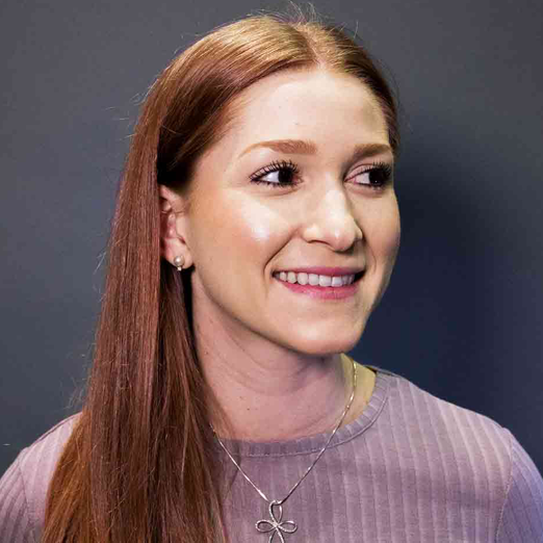Coree Mahoney

You were in the Navy before business school. What was that experience like?
I loved my time in the Navy. For my first tour, I was with an F/A-18 squadron. These jets can take off and land on aircraft carriers. I did one deployment with them to the Arabian Gulf for eight months. The pilots would fly into Afghanistan every morning to support the ground operations, and I briefed the pilots before and after missions. If they dropped any bombs, I reported it. Overall, it was amazing to experience the dedication to mission accomplishment within the US military.
Life on the carrier — which was huge, there were about 5,000 people onboard — was not as bad as it sounds. We had a Starbucks, multiple gyms and stores, a post office, and concerts and BBQs on holidays. I never had to cook, and I only had a five-minute walk to work each morning. I would get off the night shift and exercise on the rowing machine in the morning while watching dolphins play in the water.
For my second tour, I did a non-operational intelligence tour, in Washington, DC, where I worked at the Office of Naval Intelligence. I analyzed foreign naval operations in Europe, Russia, Syria, and parts of Africa. I absolutely loved that, too.
What was behind your decision to end your Navy career and go back to school?
I was attracted to Columbia Business School because there were so many international students whom I knew I could learn a lot from. I did not want to be at a school full of people just like me. I also met with alumni, who were so supportive — that’s when I knew Columbia was a community that I wanted to be a part of. Additionally, I wanted to be in New York to begin my new career, and the School offered so much access to the top businesses in the world. You can’t beat being in the heart of New York while being a student in business school.
What did you learn about leadership and organizations in the Navy that you brought with you to business school?
The US Navy is a massive organization, and inevitably there are both good and bad examples of leadership. I always looked at both as great situations from which to learn something. During my first tour in the aviation community, we had a really cohesive group. Our squadron was about 220 people, and the most senior person would meet with all of us in the hanger about once every two weeks. I saw how he set an example to take care of the sailors in the squadron and their families. I started to emulate that example.
From then on, I focused on the people who worked for me. I realized that being able to pull people in and bring everybody together, while recognizing that the method for doing so is different for everyone, is a part of leadership that is rarely emphasized. You need to adapt your strategy for motivating each person and build your team that way. And when you build a great team, they will move mountains to complete the mission.
What’s your impression of the community at Columbia Business School so far?
The military community here is awesome; it’s comforting to hear the banter back and forth between the different branches in our group chat. The Columbia community as a whole is so diverse, and I’m learning a ton, about both business and different cultures. I thought I learned a lot when I went to other countries with the Navy, but here I’m learning even more from everyone’s personal stories. I don’t think it would be such an amazing experience if it weren’t that way.
What are your plans for the future?
I am interested in the banking industry, maybe a corporate strategy type of role. Before coming to business school, if I saw a Wells Fargo on the corner, it was just a bank to me, and I didn’t think much about it. Here, I started to learn that there’s a lot behind that, so I may go that route. But I’m here to explore. I want to find something that I enjoy doing and that may be something else that I haven’t even heard of yet.
What advice would you give other military veterans who are interested in attending business school?
The most surprising thing for me was that recruiting kicks off right away in the fall. I thought I would come to business school to figure out what I wanted to do, but there isn’t much time for that. My advice for other veterans is to think about what they want to do the summer before school starts, and come prepared to start recruiting for that career path.